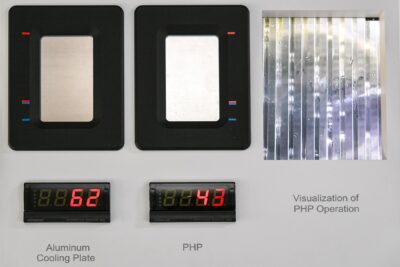
Hyundai Mobis has developed a new battery cell cooling material to prevent battery overheating during ultra-fast charging of electric vehicles.

Hyundai Mobis has developed a new battery cell cooling material to prevent battery overheating during ultra-fast charging of electric vehicles.
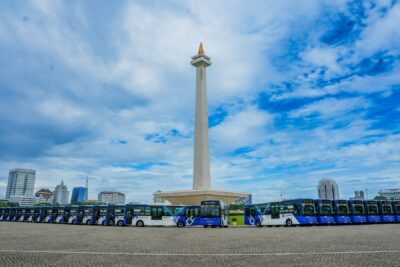
In Jakarta, the city-owned bus operator PT Transportasi Jakarta (TransJakarta) has introduced 200 new electric buses, bringing its total number of electric vehicles to 300.
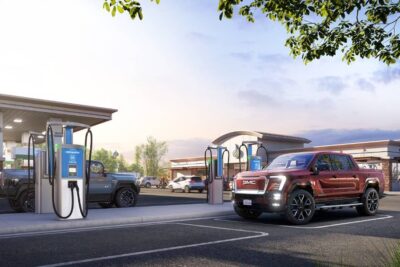
ChargePoint and General Motors are joining forces to install up to 500 ultra-fast charging ports with up to 500 kW at strategic locations in the USA by the end of 2025. Under the GM Energy brand, many suitable locations will be equipped with ChargePoint’s Omni-Port system.
More fast chargers, fewer worries for EV drivers
ChargePoint and General Motors (GM) have teamed up to make electric vehicle (EV) charging faster and easier for drivers across the U.S. By the end of 2025, the partnership plans to roll out hundreds of ultra-fast charging stations at key locations nationwide. The goal? Help EV enthusiasts spend less time waiting and more time driving.
These new charging stations are set to deliver class-leading charging speeds thanks to ChargePoint’s cutting-edge technology. With support for both CCS and NACS charging ports, drivers can charge their vehicles seamlessly—no adapters or extra hassle required. This is all thanks to ChargePoint’s Omni Port system, which makes charging more accessible, no matter the connector type.
And if you’re wondering about speed, these chargers won’t disappoint. ChargePoint’s Express Plus platform delivers charging speeds of up to 500kW, meaning a quick top-up could get you back on the road in minutes.
General Motors has been a leader in pushing for a smoother EV ownership experience. As Wade Sheffer, GM Energy’s vice president, put it, this partnership is about giving drivers better charging options and breaking down barriers to EV adoption.
GM Energy’s branding will feature prominently at these stations, combining ChargePoint’s reliable hardware and software with GM’s dedication to enhancing the EV lifestyle. The partnership also includes an incentive program to encourage third-party operators to invest in EV infrastructure, helping to grow the network even faster.
The companies are aiming to make the new charging stations publicly available by the end of 2025, focusing on strategic locations to maximize convenience for EV drivers.
For current EV drivers and those thinking about making the switch, this is great news. With faster charging and fewer hurdles, taking your EV on a long trip—or just running errands around town—will soon be more convenient than ever.
Stay tuned for more updates as ChargePoint and GM gear up to deliver this next step in EV charging evolution.
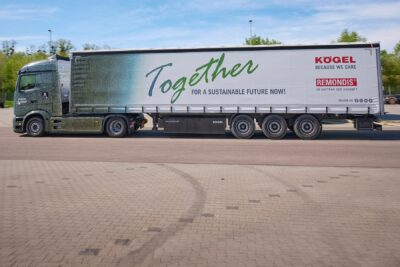
EV consultant firm P3 has published a report documenting the experiences of leading German logistics companies with electric trucks. P3 has identified the most important factors influencing electrification to provide know-how for the entire industry.
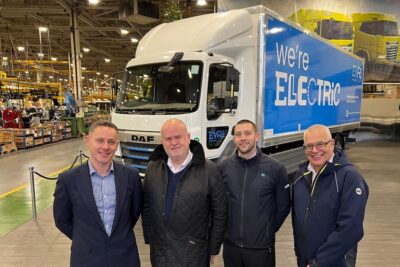
British parcel delivery company Evri has announced that the DAF XB electric truck will be used at its depot in Southampton. Evri is part of an ‘early adopter’ program limited to 10 vehicles, marking the final testing phase before series production starts in 2025.

There are apparently several potential buyers for Lilium, the German developer of electric air taxis. It could be decided this week who wins the bid. At the same time, Lilium wants to cut every fifth job.
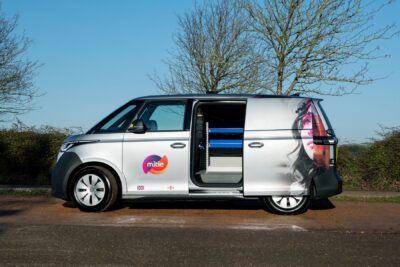
The British energy service provider Mitie has added the 6,000th electric vehicle to its fleet. A total of 73 per cent of the company’s fleet now runs on electricity.
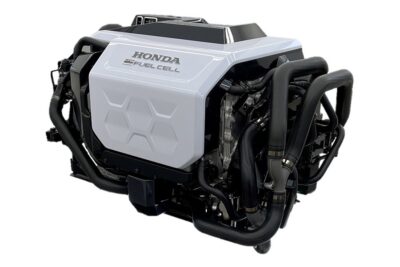
Honda wants to create a production base for next-generation fuel cell systems in Japan. The facilities will be located in existing buildings in Mooka, where Honda ceased production of car drive components in October.
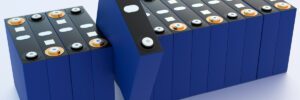
GKN Hoeganaes, a division of GKN Powder Metallurgy, is collaborating with First Phosphate toward establishing a North American supply chain for lithium iron phosphate (LFP) batteries for EVs.
The partnership follows GKN’s integration of First Phosphate’s magnetite into its proprietary Ancorsteel melting process. The process produces a high-purity iron powder, which serves as a precursor for LFP cathode active material (CAM) used in the production of LFP batteries.
First Phosphate will integrate high-purity Ancorsteel into its upcoming iron phosphate precursor (FP pCAM) and lithium iron phosphate cathode active material (LFP CAM) production facility in Saguenay-Lac-St-Jean, Quebec, which is planned to reach 400,000 tonnes of annual output by 2032. GKN Hoeganaes is prepared to scale its Gallatin, Tennessee operations to supply the facility and will provide its research and development facilities in Cinnaminson, New Jersey for process enhancement and optimization.
“This partnership combines our high-quality phosphate resources with GKN Hoeganaes’ expertise in iron powder production, setting the stage for a robust North American battery ecosystem,” said John Passalacqua, CEO at First Phosphate.
Source: GKN Powder Metallurgy